This poor, but unique chain of islands has some of the friendliest people that I have ever encountered in my travels. St. Vincent may be one of the smallest nations in the hemisphere, but it is a nation that has a big heart. It is difficult and expensive to travel to St. Vincent, unless you arrive by cruise ship, which is how I came to the islands in 2006.
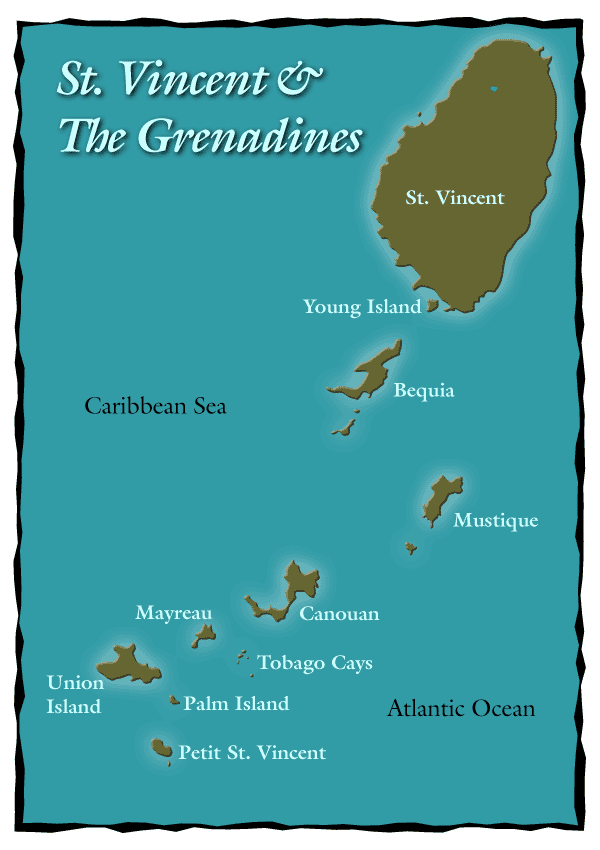 |
The native Caribs
inhabited St. Vincent before the Europeans, including Columbus, who
arrived in 1498. While claimed by Britain and France, St. Vincent
became a British colony by the Treaty of Paris in 1763. In 1773,
the island was divided between the Caribs and the British. The British
deported the Caribs to islands in the Gulf of Honduras in 1776.
Sugarcane cultivation in St. Vincent eventually brought thousands of
African slaves, and Portuguese and East Indian laborers. The islands
belonged to the West Indies Federation from 1958 until its dissolution
in 1962, when it won home rule in 1969 as part of the West Indies
Associated States. Eventually St. Vincent achieved full independence in
1979. Economic problems arose in St. Vincent following the eruption of
Mount Soufriere in April 1979 (which caused the evacuation of the
northern two-thirds of the island), and followed by Hurricane Allen in
1980. These events seriously damaged the nation's economy, particularly
the important banana crop, in the 1980's. St. Vincent has only now
begun to rebound. |
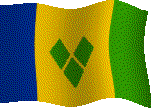 |
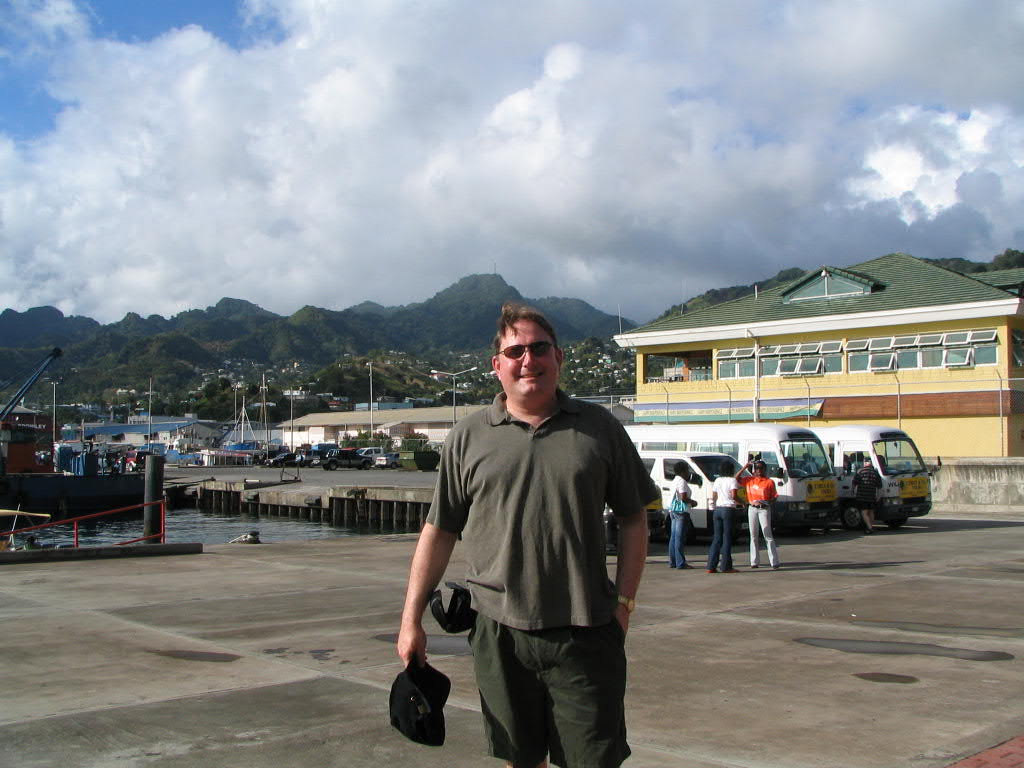
Fort Charlotte 2006
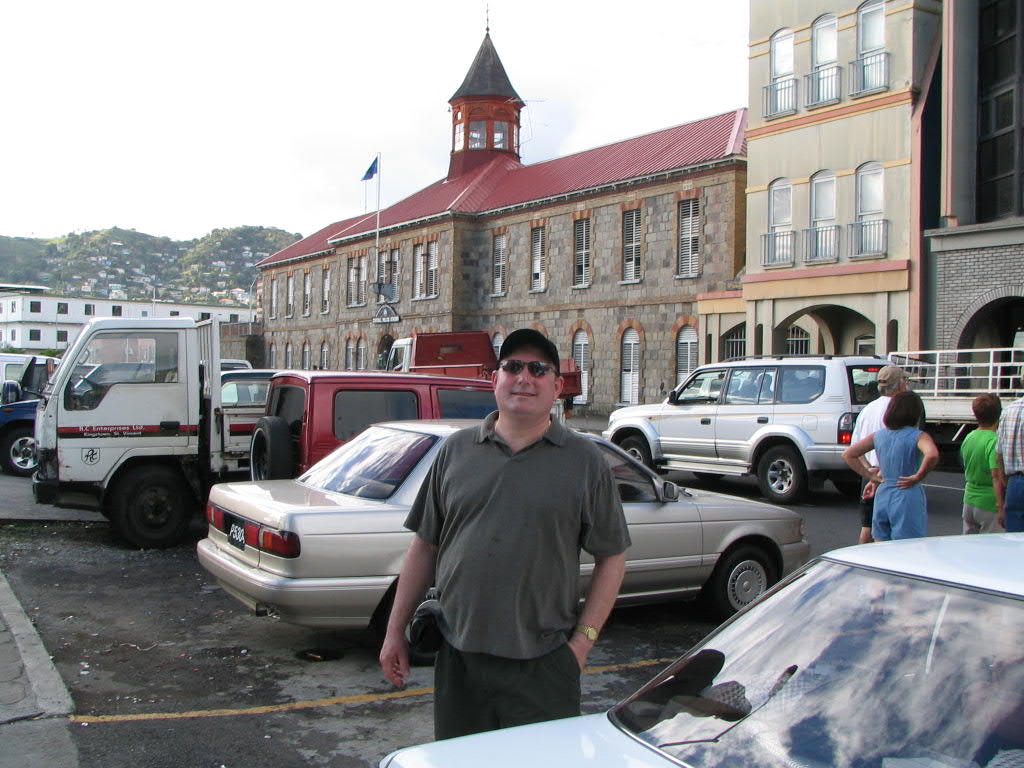
Downtown Kingstown
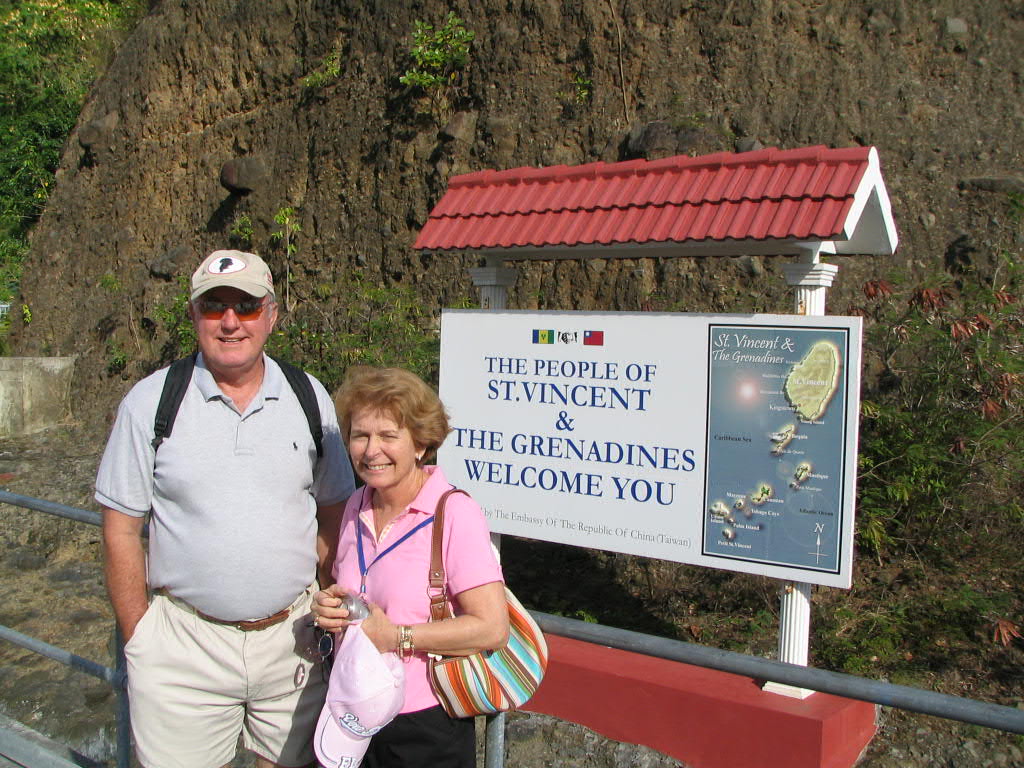
My Parents at the Port 2006
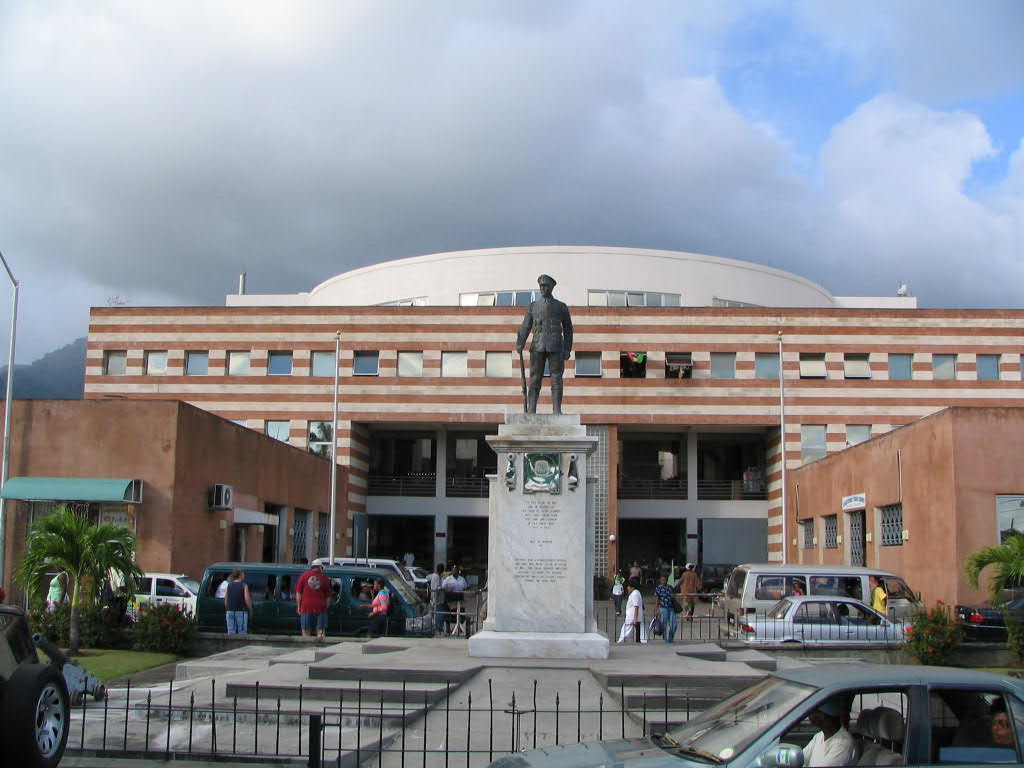
Remnants of British Colonial Days
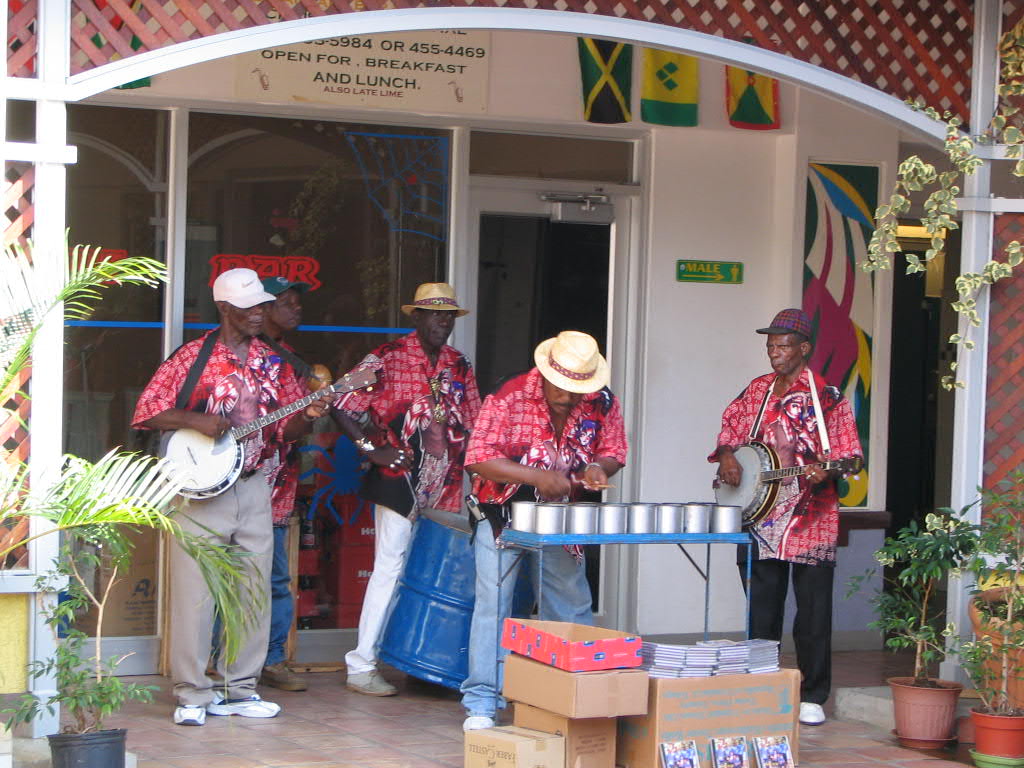
Island Calypso Players


